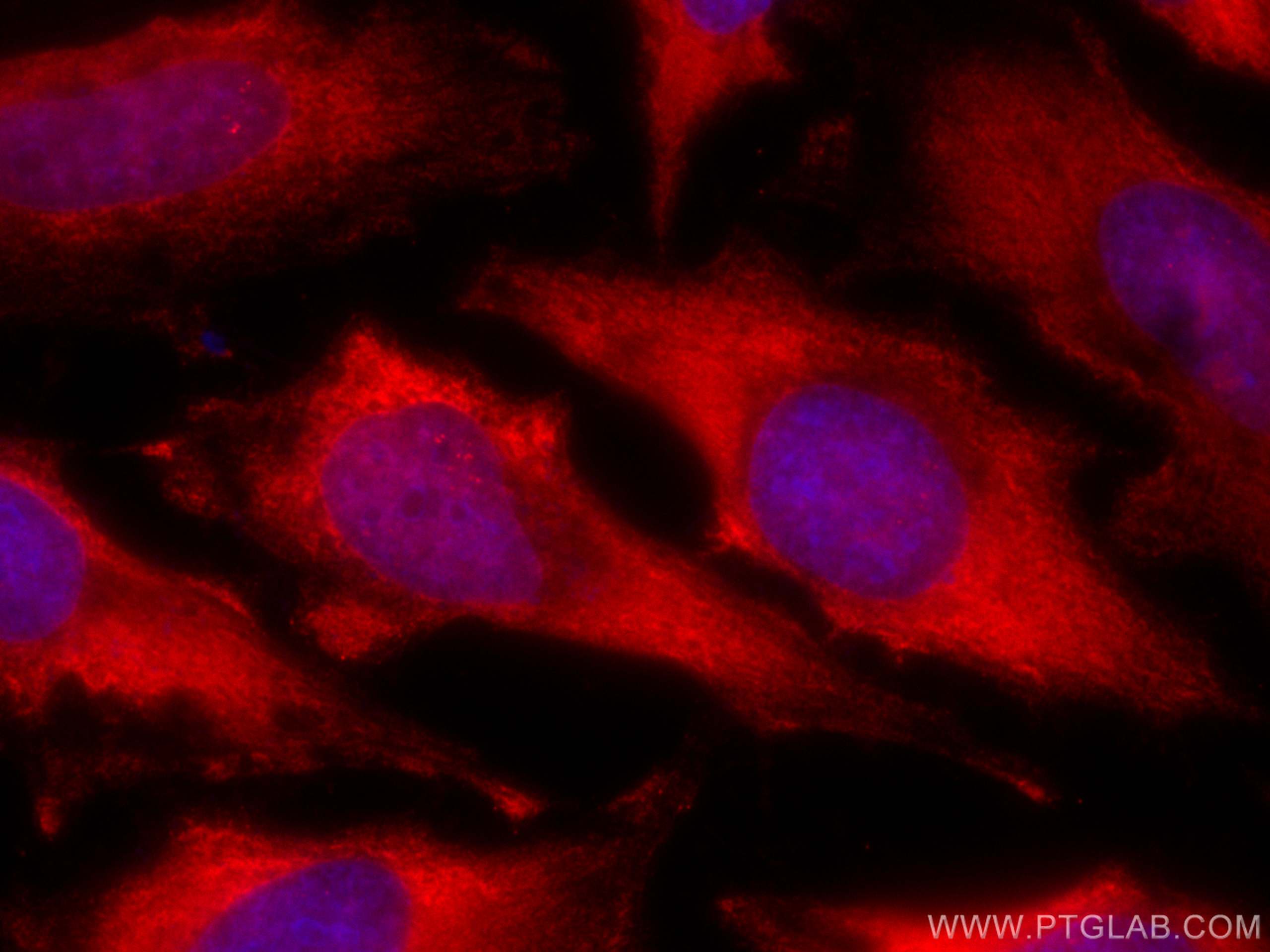TSG101 Monoklonaler Antikörper
TSG101 Monoklonal Antikörper für IF
Wirt / Isotyp
Maus / IgG1
Getestete Reaktivität
human, Maus, Ratte
Anwendung
IF
Konjugation
CoraLite®594 Fluorescent Dye
CloneNo.
2B7G8
Kat-Nr. : CL594-67381
Synonyme
Galerie der Validierungsdaten
Geprüfte Anwendungen
| Erfolgreiche Detektion in IF | HeLa-Zellen |
Empfohlene Verdünnung
| Anwendung | Verdünnung |
|---|---|
| Immunfluoreszenz (IF) | IF : 1:50-1:500 |
| Sample-dependent, check data in validation data gallery | |
Produktinformation
CL594-67381 bindet in IF TSG101 und zeigt Reaktivität mit human, Maus, Ratten
| Getestete Reaktivität | human, Maus, Ratte |
| Wirt / Isotyp | Maus / IgG1 |
| Klonalität | Monoklonal |
| Typ | Antikörper |
| Immunogen | TSG101 fusion protein Ag28569 |
| Vollständiger Name | tumor susceptibility gene 101 |
| Berechnetes Molekulargewicht | 44 kDa |
| Beobachtetes Molekulargewicht | 43-46 kDa |
| GenBank-Zugangsnummer | BC002487 |
| Gene symbol | TSG101 |
| Gene ID (NCBI) | 7251 |
| Konjugation | CoraLite®594 Fluorescent Dye |
| Excitation/Emission maxima wavelengths | 588 nm / 604 nm |
| Form | Liquid |
| Reinigungsmethode | Protein-G-Reinigung |
| Lagerungspuffer | BS mit 50% Glyzerin, 0,05% Proclin300, 0,5% BSA, pH 7,3. |
| Lagerungsbedingungen | Bei -20°C lagern. Vor Licht schützen. Nach dem Versand ein Jahr stabil. Aliquotieren ist bei -20oC Lagerung nicht notwendig. 20ul Größen enthalten 0,1% BSA. |
Hintergrundinformationen
TSG101(Tumor susceptibility gene 101 protein) is essential for endosomal sorting, membrane receptor degradation and the final stages of cytokinesis. It plays a crucial role for cell proliferation and cell survival. TSG101 has been identified as a candidate tumor suppressor gene and belongs to the ubiquitin-conjugating enzyme family. TSG101 is a marker for exosome. This protein has 2 isoforms produced by alternative splicing with the molecular mass of 44 and 32 kDa.
Protokolle
| Produktspezifische Protokolle | |
|---|---|
| IF protocol for CL594 TSG101 antibody CL594-67381 | Protokoll herunterladen |
| Standard-Protokolle | |
|---|---|
| Klicken Sie hier, um unsere Standardprotokolle anzuzeigen |


